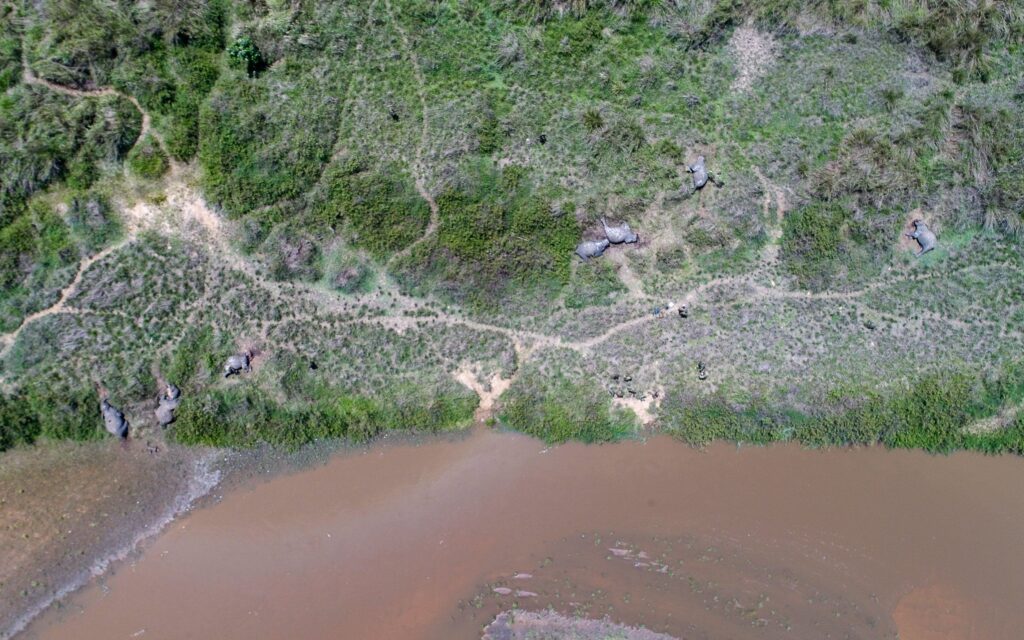On May 3, 2017 rangers heard high velocity gunshots in Garamba National Park, a 1,900 square mile UNESCO World Heritage site in the Democratic Republic of Congo. Their fears were quickly confirmed by an aerial patrol: nine fresh elephant carcasses were lying on the banks of the Garamba river. Poachers had already removed the tusks from two of these elephants. The rangers—who are employed by ECF grantee African Parks – knew the poachers would want to return for the rest, and so established an overwatch position overlooking the carcasses. That night the poachers did indeed return for the rest of the ivory, but were instead met by a hail of bullets. The rangers’ ambush wounded one of the poachers but the rest got away. In the aftermath of this confrontation, rangers began investigations of the site, discovering a discarded teacup close to one of the elephants whose tusks were removed. The cup was significant because it was typical of poachers from the Sahel, a region about a thousand kilometers away, an indication that poachers were coming from far away to get to Garamba’s elephants.
Just one day later a gang of 13 Congolese poachers were discovered by a different foot patrol in the west of the Park. These two incidents showed that heavily armed militia and rogue nomadic groups were preying on the park from all sides. Indeed, Garamba is in one of the most volatile, perilous stretches of territory on the continent. This has taken a terrible toll on the elephants there whose numbers, estimated at 22,000 in the 1960s, have been reduced to around a thousand. Last year, three rangers and military personnel were killed defending Garamba National Park against poachers. And just in April 2017, African Parks lost two more men when ranger Joel Merino Ari and Sergeant Gerome Bolimola Afokao were killed during a shootout while confronting Sudanese poaches removing tusks from freshly slaughtered elephants. The dead rangers left behind 11 children without fathers.
African Parks is working to end this destruction by putting in place highly experienced ex-military leaders who are training rangers in advanced tactics and skills. Soon their efforts will be strengthened when a larger troop-carrying helicopter arrives to enable rapid deployment of the newly equipped and trained rangers. Ensuring rangers have all the resources they need to fend off poaching is paramount to their success. One of their most important resources is data. Data helps investigators understand these wildlife crimes better. In the May 3, 2017 crime scene in Garamba, investigators collected elephant DNA for forensic testing and gathered the spent rounds of ammunition to help build a pattern that could distinguish these criminals. Alongside data, a comprehensive intelligence strategy is also key. In Garamba, the Elephant Crisis Fund is supporting the establishment of an intelligence capacity in the park designed to gain a better understanding of the regional poaching threats and the modus operandi of armed groups.
For decades, poaching has been a major problem in Garamba. With a better knowledge of the environment and the poachers, coupled with improved training and intelligence, African Parks now has a chance of gaining the upper hand. They are now moving towards a situation where poaching can be disrupted in the park before it starts, reducing the loss of both rangers and elephants.
